
Tech & Sci
09:53, 07-Jun-2018
EV charging stations blazing new trail in energy conservation, conversion in China
CGTN
03:26
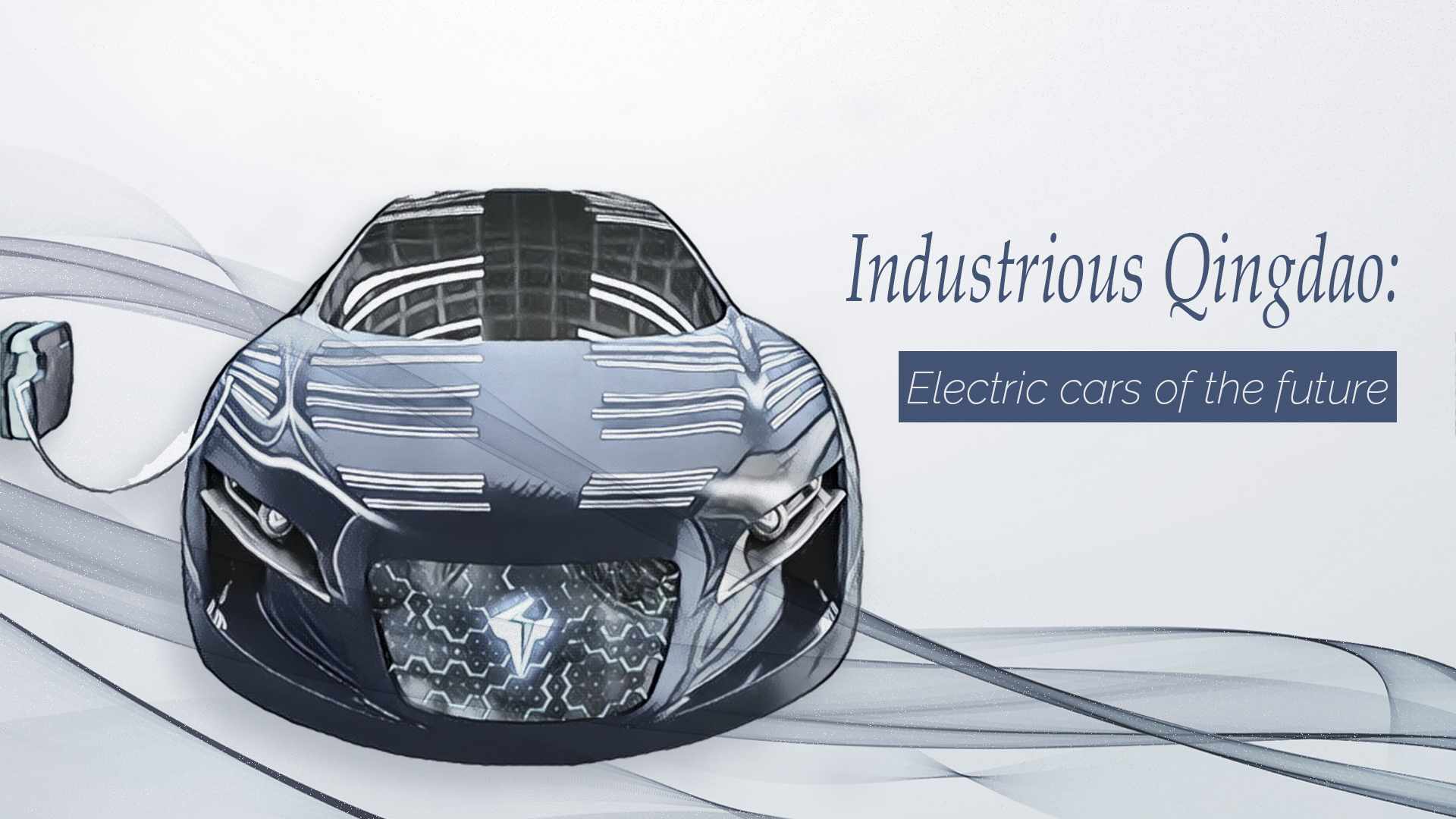
Electric vehicles (EVs) are gearing up to be the king of tomorrow's roads – at least until they swap steering wheels for airplane-like yokes and take to the skies. But one Chinese entrepreneur is convinced that whether cruising highways or hovering above the ground, electric cars will not just be for transportation.
Unlike their gas-guzzling, carbon-spewing, pollution-puffing contemporary counterparts, EVs will power a greener world by reducing noxious emissions released into the air. The Chairman of Qingdao TGOOD Electric Co., Ltd. Yu Dexiang also wants these cars to revolutionize the traditional electric grid and the way of energy utilization.
"Electric vehicles are tools for mobile energy storage," Yu told CGTN. "Electricity prices will significantly fluctuate throughout the course of one day, so drivers can fully charge up when prices are low, and sell the stored energy when prices peak."
Yu's grand plans for the future sound like they came out of a sci-fi movie or a fantasy novel, but they're real alright, drawing their raison d'être from the burgeoning EV technology.
For all his passion about EVs, Yu did not set up an automaker. TGOOD designs, develops and produces unit power transformers and distributors.
The company has been investing in charging piles for electric vehicles since 2014, laying out a sprawling nationwide infrastructure of charging points and stations driven by a growing demand for the vehicle in the world's largest EV market.
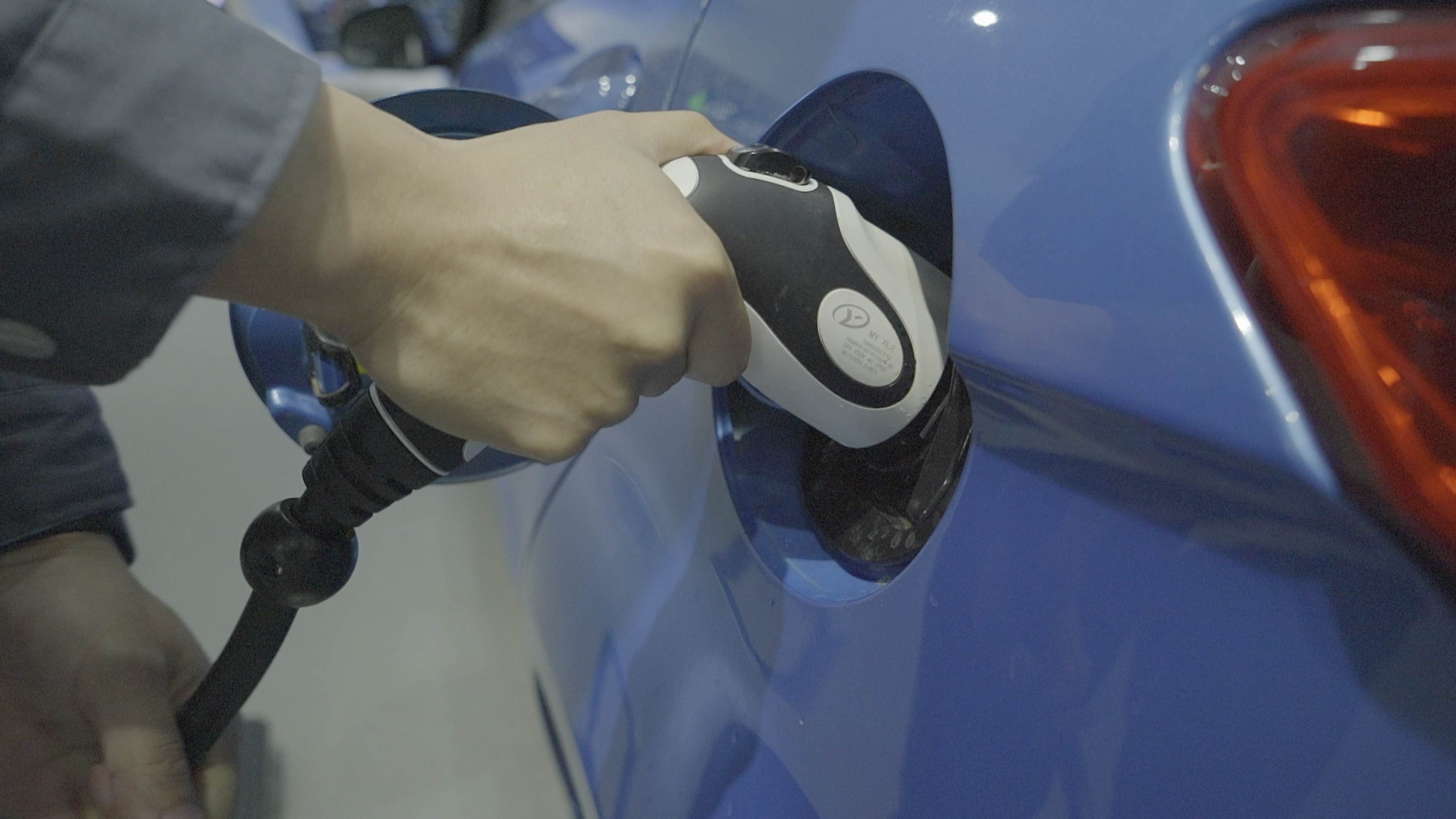
/CGTN Photo
/CGTN Photo
At the wheel in the EV industry
Some 777,000 EVs were sold in China in 2017, up 53 percent from a year earlier, according to the China Association of Automobile Manufacturers (CAAM). Five million EVs are expected to be on the road in the country by 2020; and by 2030, EV penetration in major Chinese cities could reach 60 percent, according to Massachusetts-based market analysis firm Greentech Media.
Domestic car manufacturers are revving up their output of energy-saving and new energy vehicles, incentivized by a raft of favorable government policies and subsidies. At the 2018 Beijing Auto Show seven out of 10 new energy vehicles on display rolled out of a Chinese automaker's assembling line.
Yu says China's lead in the EV segment is the result of necessity birthing innovation.
Technology is an evolutionary tool in a country undergoing structural economic changes and industrial upgrades under the "Made in China 2025" plan, and where pollution control is officially designated as one of the "three tough battles" facing the government.
"We see houses and cars everywhere, from first-tier cities to counties. President Xi Jinping has said ‘houses are for living, not for speculation.’ This means that after the real estate sector drove China's economy for decades, it cannot continue to be the biggest driving force for development. In other words, after we've replaced the houses, and as the Chinese economy still needs to continue its development [course], we now need to replace the cars," Yu argued.
EVs have redefined what a car is, turning it from a "mechanical product to an electronic product" and allowing China to be in the driver's seat, he maintained.
"Electric vehicles are the advantage of the Chinese people. So many Internet companies are building them."
Charging forward
Yet EVs need more than paved roads to run – and that's where companies like TGOOD step in to ensure the momentum of the new vehicles keeps going strong.
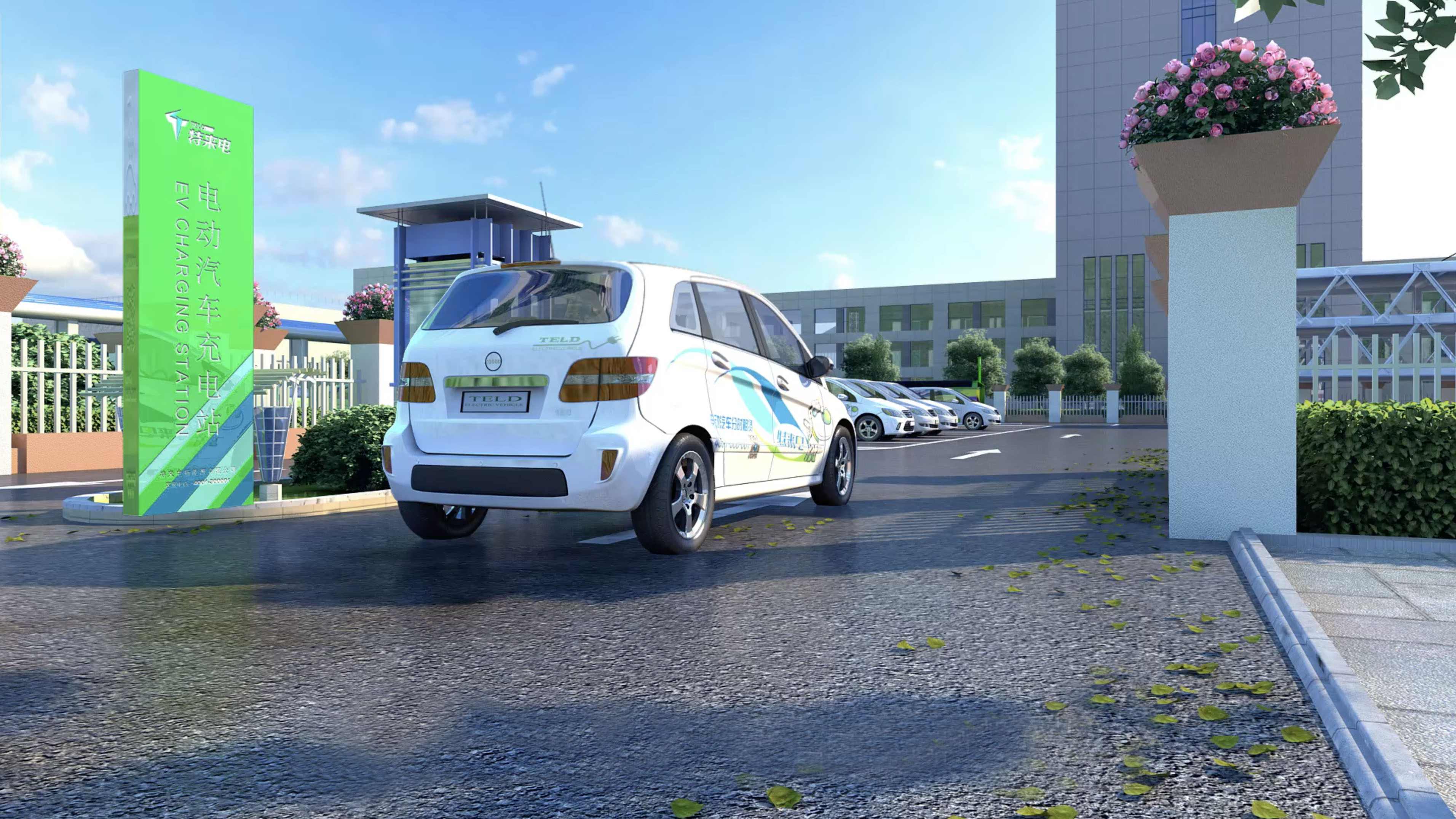
TGOOD's Charging Station. /courtesy of TGOOD
TGOOD's Charging Station. /courtesy of TGOOD
The number of public charging facilities went from a little over 1,100 in 2010 to 150,000 in 2016 – a compound annual growth rate of 126.1 percent, according to Research and Markets data.
By 2017, China had over 214,000 public power ports for EVs, figures from the China Electric Vehicle Charging Infrastructure Promotion Alliance show. Private charging points reached 232,000 last year, bringing the total number of accessible ports to plug in EVs to over 440,000 units in the country, more than anywhere else in the world.
TGOOD controls between 46 to 50 percent of the market for charging stations in China. Its piles are accessible every two kilometers in some 290 cities across the country, Yu noted.
China is not, however, halting its drive to build an infrastructure of charging stations, which would cost a staggering 43 billion US dollars between 2016 and 2020, according to estimates by Bloomberg New Energy Finance. The country is aiming for 4.8 million charging piles by 2020 to meet the demands of the projected five million electric cars rolling on the streets by then – almost a charging port for each electric car.
TGOOD is doubling down on that ambitious goal to combat "range anxiety" – the fear that an EV's battery would deplete at a location with no charging stations around.
"We hope to have two charging stations within one square kilometer so that everyone will not have to worry about charging up," Yu revealed.
From charging piles to redefining energy use
Yu is quick to note that while others are making charging piles, his company is building charging networks – the first step to radically change how traditional electrical power systems function.
"The charging pile is just a plug for charging a car with electricity, and the charging network is a charging management system that physically connects the charging terminals together."
This effectively allows the interconnected platform to determine how much electricity goes into the electric vehicle and how long the charging time will last, according to the capacity of the grid, the needs of the motorist and the charging requirements of the EV's battery.
For example, vehicles out of juice but whose owner is on a tight schedule would get a priority at a charging area over other vehicles parked overnight.
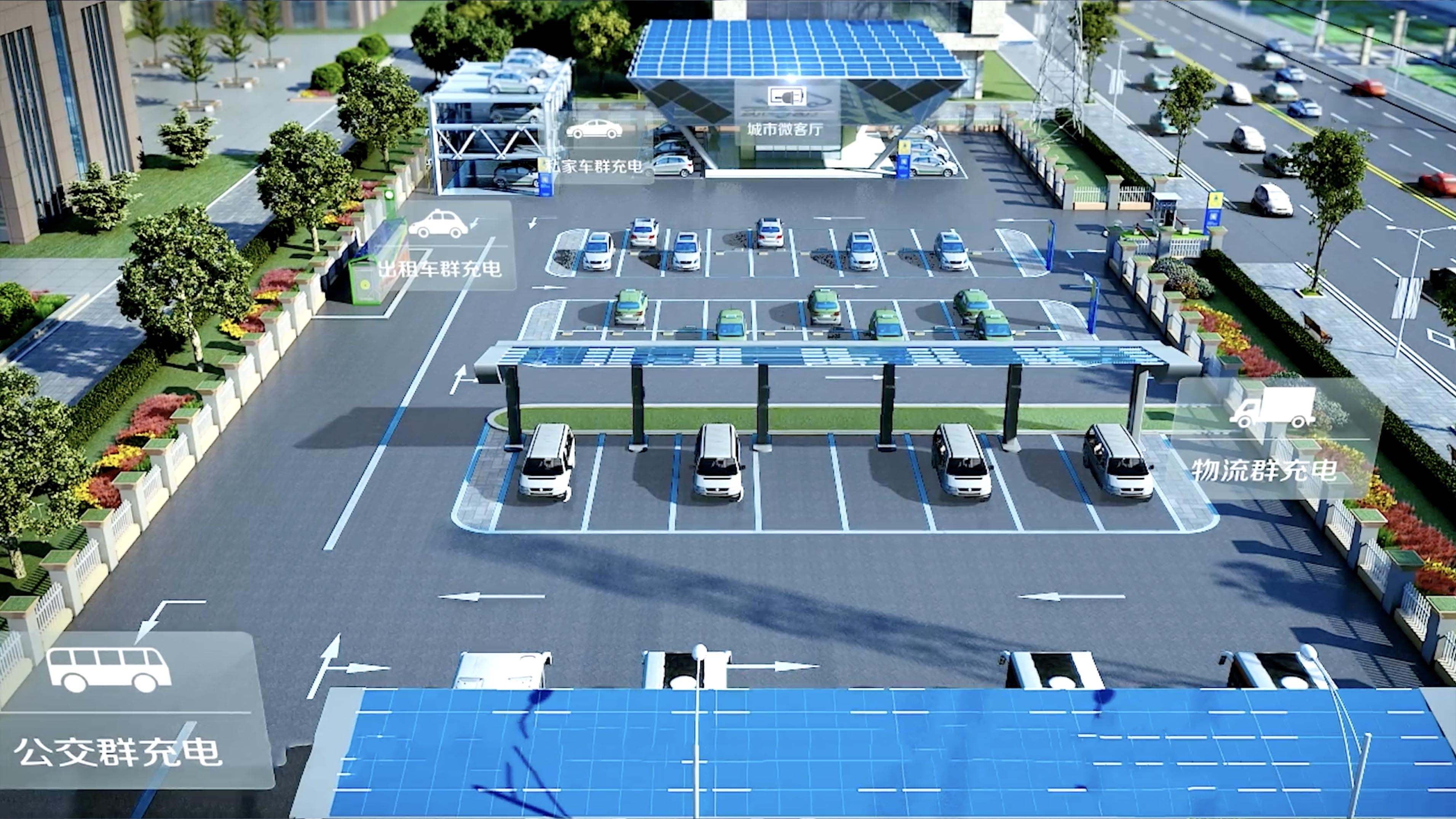
TGOOD's Charging Platform. /courtesy of TGOOD
TGOOD's Charging Platform. /courtesy of TGOOD
Such management system requires direct communication between the driver, the charging platform, the vehicles and the electrical grid through the "Internet of Everything" (IoE).
TGOOD is going the extra mile to apply the IoE concept in a new set-up for EV charging and discharging, transforming vehicles into both consumers and producers of energy, in order to optimize utilization of energy resources.
"If a large-scale electric vehicle industry is to be developed in the future, all wasted electricity should be stored in the batteries of electric vehicles. With such a network, a two-way flow of energy and interaction of data information can be accomplished," Yu noted.
This format of the electrical distribution system will enable energy conversion through the integration and interaction between new and traditional electricity sources, EVs and virtually every energy-hungry asset around them from lampposts and elevators, to roads and buildings.
The new ecosystem can alternate between feeding off power plants and the capacity stored in EVs and elsewhere to ensure efficient use of electric current down to the last ampere.
The Qingdao factor
A bit of imagination has gone a long way in TGOOD's quest to unlock unconventional means of energy conversion. But Internet and information technologies are enabling engineers' sketches to come to life.
Qingdao in east China, where the company is headquartered, has been an incubator of its avant-gardism, benefitting from the thriving information and communication technology in Shandong Province. The city that was once known for its textile, construction materials and home appliance sectors is now seeing the Internet of Things (IoT), cloud computing and high-tech manufacturing leading industrial development.
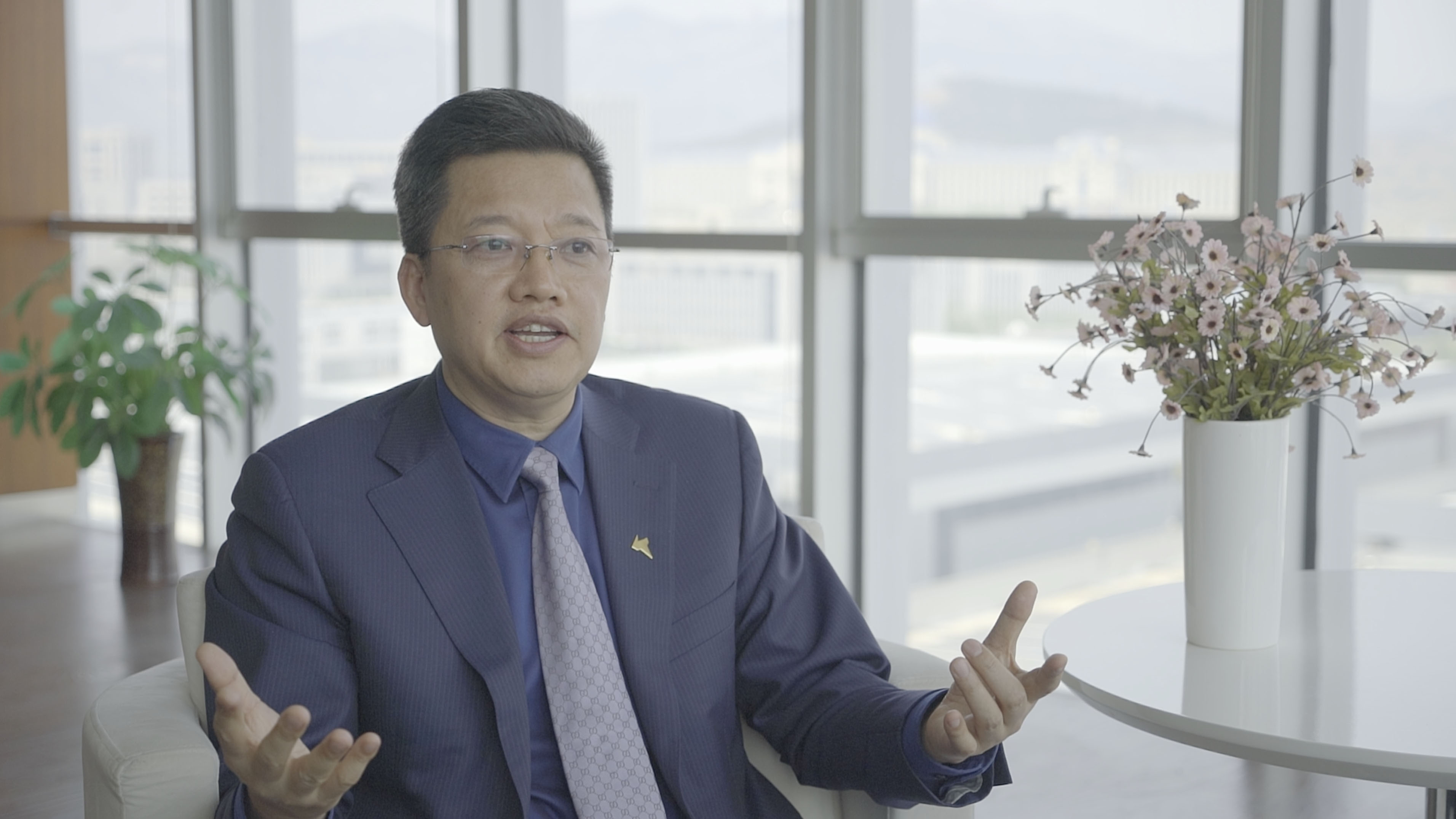
Yu Dexiang, chairman of Qingdao TGOOD Electric Co., Ltd./CGTN Photo
Yu Dexiang, chairman of Qingdao TGOOD Electric Co., Ltd./CGTN Photo
"In the 1980s, we seized the development of the home appliance industry. So in Qingdao, we created Haier, Hisense, Aucma, and others. But in the 1990s, Shandong did not join the Internet industry when Internet use was picking up. When everyone was doing e-commerce in 2000, we didn't," Yu said.
But things drastically changed once the authorities joined the country's digital revolution. Tech behemoth Alibaba, telecom giant Huawei and e-commerce major Amazon are some of the big industry names who have invested in Qingdao in recent years.
The "Internet has evolved into a tool," Yu asserted – an instrument Chinese companies are employing to fuel eco-friendly technological innovation in the automotive industry.
(Nadim Diab, Lin Zihan, Yang Xinmeng and Qi Jianqiang contributed to the story.)

SITEMAP
Copyright © 2018 CGTN. Beijing ICP prepared NO.16065310-3
Copyright © 2018 CGTN. Beijing ICP prepared NO.16065310-3